In the wake of its deadliest mass shooting, America once again confronts its unending cycle of gun violence

They came from near. And they came from afar—as far as Alaska. For thousands of country music fans at the Route 91 Harvest festival on the outskirts of Las Vegas, the three-day open-sky jamboree was coming to one glorious, rambunctious end, with megastar Jason Aldean’s eagerly awaited closing performance. But suddenly, and without warning, the groovy and warm Sunday evening turned into a night of unmitigated horror. The shooting started a few minutes after 10; it went on for at least 10 uninterrupted minutes. Bullets rained in bursts upon hundreds of people, spreading confusion, disbelief and panic.
The murderous hail left over 50 dead, more than 500 injured, and a nation’s heart shredded into pieces.
Sara Hass, a survivor, later relived the moment on NBC News. “Everybody starts running, everyone’s on the ground, everybody’s yelling, everyone’s confused,” she said. “No one knows what’s really going on. Everyone thought it might have been fireworks, but it was...you know....”
They know indeed. Although the deadliest mass shooting in recent US history, the tragedy in Las Vegas was hardly an aberration. In a country with half the world’s civilian-owned guns—over 300 million, by an estimate—mass shootings are routine. They make it to national news only when they are particularly poignant or the toll is unnervingly high. Five years ago, a gunman killed 20 children at an elementary school in Newport, Connecticut. It left then-president Barack Obama in tears and sparked nationwide calls for gun control. More than 1,500 mass shootings have taken place since then—one almost every day—according to the Gun Violence Archive. Gun control laws have remained stubbornly unchanged.
Diese Geschichte stammt aus der October 16, 2017-Ausgabe von Outlook.
Starten Sie Ihre 7-tägige kostenlose Testversion von Magzter GOLD, um auf Tausende kuratierte Premium-Storys sowie über 8.000 Zeitschriften und Zeitungen zuzugreifen.
Bereits Abonnent ? Anmelden
Diese Geschichte stammt aus der October 16, 2017-Ausgabe von Outlook.
Starten Sie Ihre 7-tägige kostenlose Testversion von Magzter GOLD, um auf Tausende kuratierte Premium-Storys sowie über 8.000 Zeitschriften und Zeitungen zuzugreifen.
Bereits Abonnent? Anmelden

Trump's White House 'Waapsi'
Donald Trump's victory in the US presidential election may very well mean an end to democracy in the near future

IMT Ghaziabad hosted its Annual Convocation Ceremony for the Class of 2024
Shri Suresh Narayanan, Chairman Managing Director of Nestlé India Limited, congratulated and motivated graduates at IMT Ghaziabad's Convocation 2024
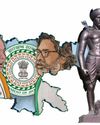
Identity and 'Infiltrators'
The Jharkhand Assembly election has emerged as a high-stakes political contest, with the battle for power intensifying between key players in the state.
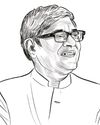
Beyond Deadlines
Bibek Debroy could engage with even those who were not aligned with his politics or economics

Portraying Absence
Exhibits at a group art show in Kolkata examine existence in the absence

Of Rivers, Jungles and Mountains
In Adivasi poetry, everything breathes, everything is alive and nothing is inferior to humans

Hemant Versus Himanta
Himanta Biswa Sarma brings his hate bandwagon to Jharkhand to rattle Hemant Soren’s tribal identity politics
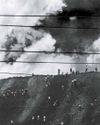
A Smouldering Wasteland
As Jharkhand goes to the polls, people living in and around Jharia coalfield have just one request for the administration—a life free from smoke, fear and danger for their children
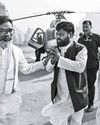
Search for a Narrative
By demanding a separate Sarna Code for the tribals, Hemant Soren has offered the larger issue of tribal identity before the voters
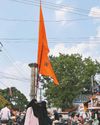
The Historic Bonhomie
While the BJP Is trying to invoke the trope of Bangladeshi infiltrators”, the ground reality paints a different picture pertaining to the historical significance of Muslim-Adivasi camaraderie